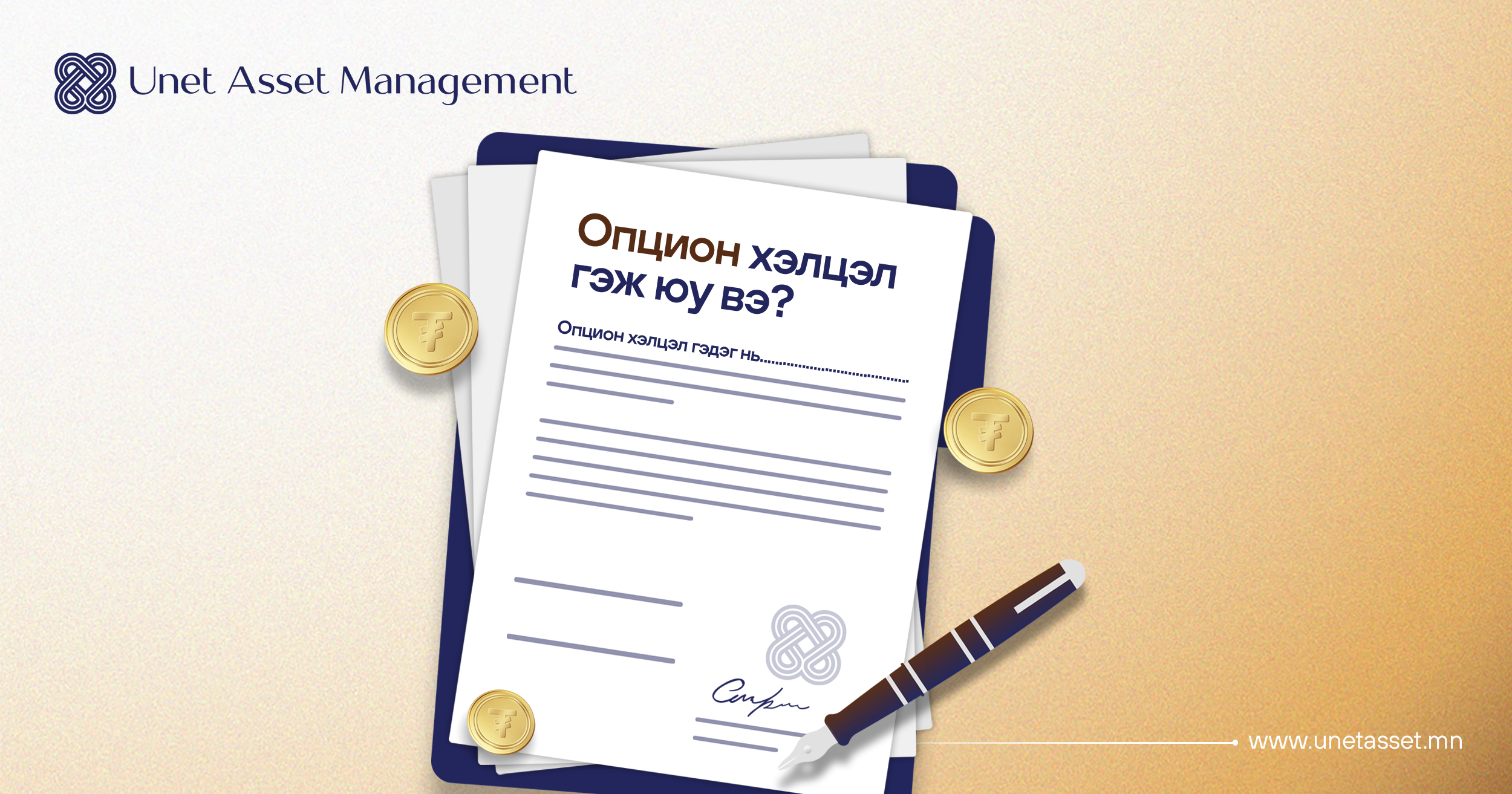
What is an option contract?
An option contract is a widely used derivative financial instrument in the financial market. It grants the buyer the right—but not the obligation—to buy or sell a specific asset at a predetermined price in the future. The key difference from other contracts is that exercising this right depends solely on the buyer’s decision, and the buyer pays an option premium to the seller to acquire this right.
There are two main types of option contracts:
Call Option: This gives the right to buy the underlying asset at a predetermined price. For example, suppose an investor enters into a call option contract to buy one share at 100 MNT three months from now. If the share price rises to 120 MNT after three months, the investor earns a profit of 20 MNT. However, if the price falls to 80 MNT, the investor faces a potential loss of 20 MNT but can choose not to exercise the option, losing only the option premium paid to end the contract.
Put Option: This gives the right to sell the underlying asset at a predetermined price. For example, suppose an investor enters into a put option contract to sell one share at 100 MNT three months from now. If the share price drops to 80 MNT at contract expiry, the investor gains 20 MNT per share. Conversely, if the price rises to 120 MNT, the investor faces a potential loss of 20 MNT but can choose not to exercise the option, losing only the option premium and ending the contract.
The advantage of these contracts is that they protect investors from risk while keeping the maximum potential loss limited and predictable.